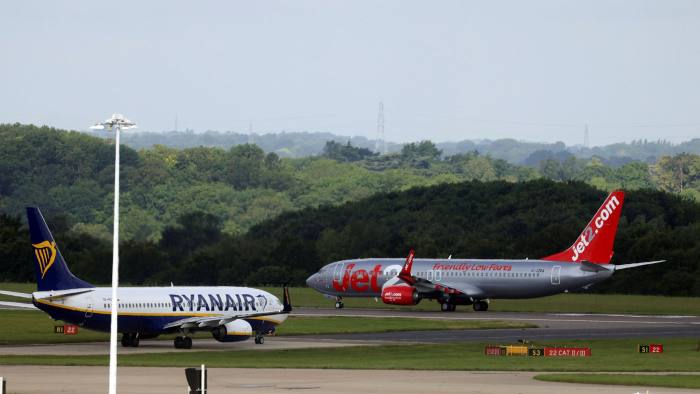

Brussels will set out plans this week to increase taxes on polluting fuels and introduce an EU-wide levy on aviation kerosene for the first time, under measures intended to put it at the forefront of global efforts to reduce carbon emissions.
The European Commission will propose a revamp of its 15-year-old rule book on carbon taxes to provide an incentive for low-emissions fuel and impose levies on heavily polluting energy used in the airline and shipping industry. The measure is one of a dozen policies to be unveiled on Wednesday to ensure the EU can meet a goal of reducing average carbon emissions by 55 per cent by 2030. Others include an extension of the EU’s emissions trading scheme, tougher CO2 rules for cars and a carbon levy on some imports.
A draft legal text of the energy taxation directive, seen by the Financial Times, proposes gradually increasing minimum rates on the most polluting fuels such as petrol, diesel and kerosene used as jet-fuel over a period of 10 years. Zero-emissions fuels, green hydrogen and sustainable aviation fuels will face no levies for a decade under the proposed system.
The “Fit for 55” package puts the EU at the vanguard of decarbonisation efforts but the proposals risk a backlash from some governments and the public.
Guest post from Financial Times




